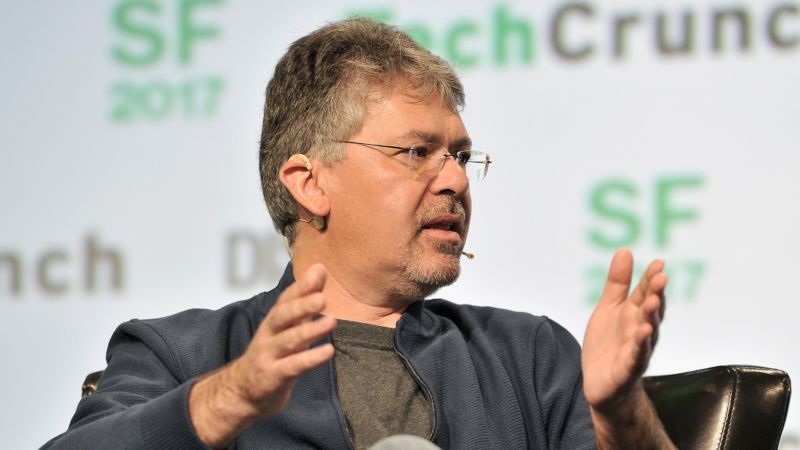
Yesterday, Google SVP of Engineering in charge of search and artificial intelligence John Giannandrea announced his departure from the company. Now the reason for that departure is clear: he's been hired by Apple to lead the company's "machine learning and A.I. strategy," reporting directly to CEO Tim Cook.
The New York Times obtained an email from Cook to Apple staff explaining the new hire:
Our technology must be infused with the values we all hold dear... John shares our commitment to privacy and our thoughtful approach as we make computers even smarter and more personal.
Giannandrea joined Google in 2010 as part of the company's acquisition of Metaweb, the company behind Freebase, a community-driven database of data and information that was eventually leveraged to augment Google search results. He has also worked as Chief Technologist for Netscape, and he sits on the board of trustees for the SETI institute.
Apple needs strong talent to improve its machine-learning and artificial intelligence efforts, which lag behind those of competitors like Amazon and, yes, Google. Four days ago, former Engadget Editorial Director and Wall Street Journal writer Joshua Fruhlinger posted an analysis to data-reporting platform Thinknum revealing that Apple has amped up hiring for the division that handles Siri, its AI assistant. He counted 161 job listings from Apple related to Siri.
Many of those hires will no doubt report either directly or indirectly to Giannandrea as he takes the reins at Apple.
Neither Cook nor Giannandrea have made any public statements about the future direction of Apple's machine-learning and AI strategy. But last year, Apple added a dedicated AI chip called Neural Engine to the A11 Bionic for the iPhone 8, iPhone 8 Plus, and iPhone X to work with the Image Signal Processor (ISP). This chip applies effects and other adjustments on the fly to photos and videos taken on the device, and it is credited for making the new Portrait Lighting feature work, although Apple has not gone into great detail about this.
Further, Apple has invested in Siri and HomeKit to compete with Google Home and Alexa-based smart home systems. There are surely more applications of machine learning planned in the future; Giannandrea would likely spearhead those efforts.
The company has also tried to distinguish its AI strategy from those of competitors by saying it is not contingent on collecting and working from personal and user-identifying data, hence Cook's above quote about privacy. It's part of an ongoing effort from Apple executives to differentiate the company from Google and Facebook by convincing customers that Apple's business model is not based on user data.
If Apple is now as sincere about that as it claims, Giannandrea will have to work from a somewhat different playbook than he did at Google.
reader comments
87